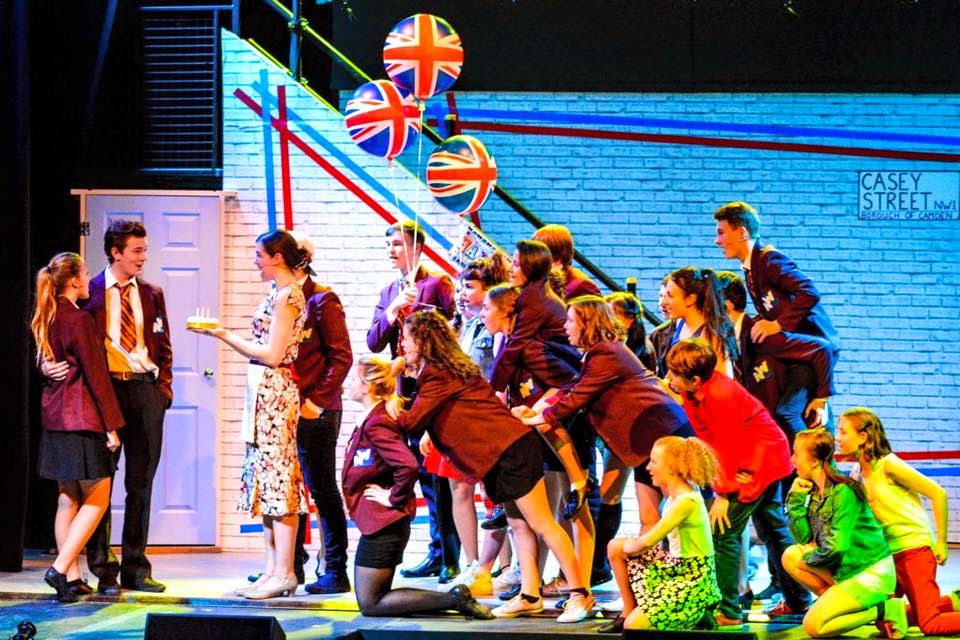LION
BOY
Complicité
at
the
Mercury Theatre Colchester
17.02.2015
“This
is a big story – it needs to be savoured!”
Complicité's
first show aimed at a younger audience, now revived and touring,
makes a great half-term treat for the Mercury Theatre, directed by
Clive Mendus and James Yeatman after the original by Annabel Arden.
It's the story of
Charlie Ashanti, who knows the language of cats great and small. His
parents are scientists, abducted by the megalithic Corporacy, a big
pharma multinational who are keen to prevent the development of a
cure for asthma.
Charlie's
hectic quest to free them takes him from London to France to Morocco;
on the way he joins a floating circus, whose pride of lions he vows
to release back into their natural habitat.
Introductions
over, Complicité dig deep into the theatrical toolbox in a dazzling
display of the storyteller's art.
Shadowplay,
sinister round video screens, a miniature hot air balloon, live
percussion from composer Stephen Hiscock. But most of the effects are
ingeniously simple: metal stepladders for the Corporacy HQ, a
brilliant door-slam, wet inner tubing in a bucket for the eel-monger,
splashing squealing youngsters in the front stalls.
He's
just one of a gallery of boldly-drawn characters: the smooth-talking
CEO, the multi-lingual chameleon, the bearded lady, the young villain
Rafi and his invisible pit-bull, Maccomo the lion tamer, King Boris
of Bulgaria, and audience favourite Sergei, the GM moggie from Wigan,
played by Eric Mallett.
Martins Imhangbe
makes an engaging Charlie, telling his life story and, magically,
morphing into his friends the lions with a deft flick of his lithe
frame.
All
played out on the circular stage, redolent of the big top, with the
faded floor scarred by hooves, feet and paws.
Like Zizou
Corder's books, the piece is openly didactic, the chases, the
juggling and the physical fireworks alternating with discussions
about animal rights and morality. Culminating in a boxing bout –
competitive point-scoring with Charlie in the stage left corner, and
Rafi [Angel Lopez-Silva] representing the Corporacy stage right. But
the youngsters in the audience seem rapt throughout, and are rewarded
in the end by being actively involved in the story - roaring their
heads off to defeat the big bad boss [Clive Mendus].
“There
are many ways to tell a story,” the cast admit as the play closes.
And, commendably, we are encouraged to read the books for ourselves.
But all those who
come aboard the show-boat Circe will have had a uniquely theatrical
experience, impossible to replicate in any other medium, save perhaps
in the unfettered imagination of a child lost in a storybook ...
production photograph by Mark Douet
%2B3%2BPhotocredit%2BMARK%2BDOUET.jpg)




